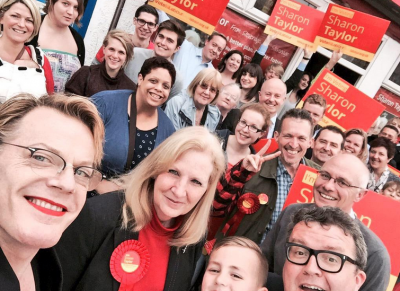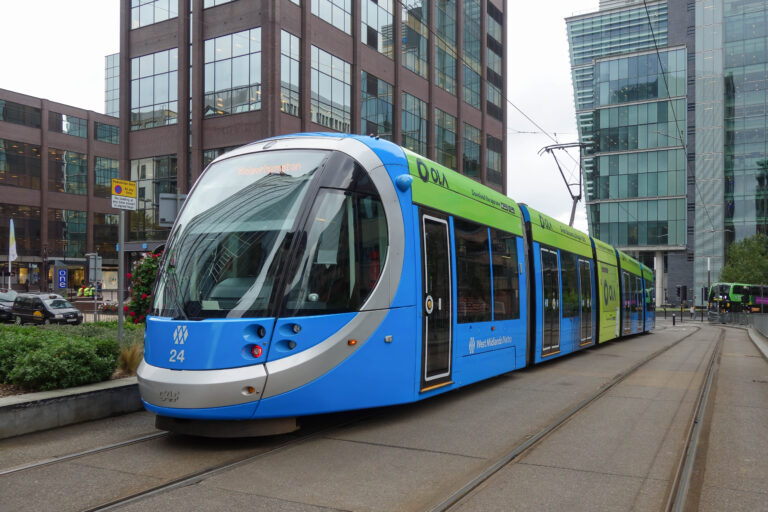Energised. That’s how I would sum up the Labour Party’s campaign in Stevenage.
Buoyed by a Friday evening visit by Eddie Izzard and Tom Watson and a Saturday morning visit by Ed Miliband, I was among 100 volunteers who had given up their weekend to campaign for Labour’s Parliamentary Candidate for Stevenage, Sharon Taylor, in a bid to win back a marginal seat lost to the Conservatives in 2010.
Stevenage is a key marginal constituency and is a straight fight between Labour in the red corner and the Tories in the blue corner. The incumbent, Stephen McPartland, oversees the 154th smallest majority in the country – just 3,578 votes. Labour needs a 4.0% swing to win the seat.
In January Ed Miliband set out Labour’s ambition to have 4 million conversations in 4 months: to explain the party’s vision for the UK ‘house by house, street by street, town by town’ and the Stevenage Labour Party has played a leading role in making this ambition a reality. It has spoken with more voters than any other Labour CLP; this week alone 5,000 conversations were had.
In the battle for marginal constituencies that will, ultimately decide the outcome of the election, this is crucial.
So, what did I take from two days on the ground in Stevenage?
A local candidate matters. Time and again I spoke to people on the door who knew Sharon by name and what she stood for. It mattered to them that Sharon was Stevenage born and bred. As one voter said to me ‘she is one of our own’. All parties are guilty of parachuting in candidates to fight in seats where they have no real connection, and maybe sometimes that is the best decision, but not in Stevenage. Sharon’s credentials as a local candidate and her role as Leader of Stevenage Borough Council meant that she is well known to voters. One lady insisted that she would otherwise vote UKIP if it wasn’t for Sharon and for the years of work she had put into supporting Stevenage.
Face-to-face conversations matter. Much has been made of Labour’s slick grassroots operation. The party has far more volunteers willing to knock on doors than the Conservative Party and at the weekend this was telling. As we worked in a teams of four or five to talk to hundreds of voters on each street, we passed Conservative canvassers in pairs attempting to have the same number of conversations. I could be certain that with every garden path I walked up, I was treading in the footsteps of a previous Labour volunteer. Almost every conversation I had on the doorstep was building on a conversation had by another volunteer days or weeks before. The result? Voters telling me that where they were once undecided about who to vote for, they were now leaning towards Labour, and in a number of cases, that they had already voted Labour by post.
The economy does matter. But only if people feel that they are sharing in the growth and prosperity. Again and again, I spoke to voters on the doorstep who felt that they hadn’t benefited from the economic recovery; their job security remained fragile, their wages were low and managing their household budget was stressful. Labour’s pledges to end zero hour contracts, to boost the minimum wage and repeal the Bedroom Tax spoke to their immediate daily concerns.
Key to the campaign in Stevenage is confidence, but not complacency. The Labour team on the ground know they need to fight harder in the next 10 days than they have over the past 10 weeks. Nothing in a marginal seat can be taken for granted.
In such a closely fought election where every marginal matters, commentators are understandably nervous about calling the election. However, in this marginal I’m setting out my stall and calling this contest for the red corner.




